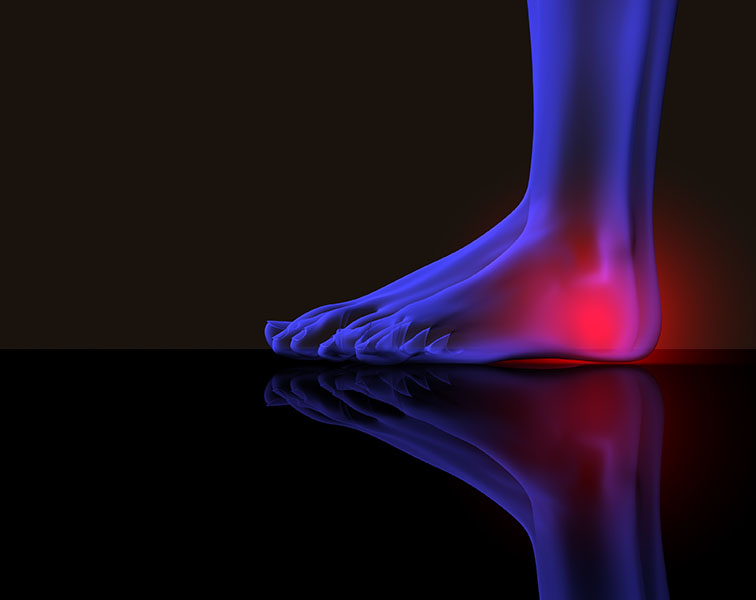Heel pain is a common foot problem that can be caused by a variety of conditions. These problems can be related to a stress fracture, arthritis, tendinitis, nerve impingement, cyst, and even a tumor. But the most common cause of heel pain is plantar fasciitis.
PLANTAR FASCIITIS: THE MOST COMMON FORM OF HEEL PAIN
Plantar fasciitis is defined as inflammation of the plantar fascial band. To truly understand this condition, we will need to talk about the anatomy of the foot. There is a band on the bottom of the foot which goes from your heel bone to all of your toes called the plantar fascia. When this band gets inflamed it becomes plantar fasciitis. Repetitive stress on the foot is the most common cause of inflammation. It happens to very active people, as well as those who are mostly inactive. A change in activity levels, such as starting a new exercise regimen or a new job with increased activity, can also cause plantar fasciitis.
Wearing shoes with no support can cause abnormal strain on the plantar fascial band causing it to become inflamed. Patients frequently complain about pain on the bottom of the heel, especially after long periods of sitting or when first stepping out of bed. They report that the pain improves temporarily after taking a few steps, but that it worsens as they continue to walk. This is because walking stretches the plantar fascial band, relieving the pain. When the foot is at rest, the plantar fascial band becomes tightened. Once we step down, the foot flattens out, stretching the band. However, since it is so tight, the plantar fascial band tears at the area where it inserts into the heel. This tearing causes inflammation, resulting in pain.
HOW TO TREAT PLANTAR FASCIITIS AND HEEL PAIN
To diagnose plantar fasciitis, one needs to see a foot and ankle specialist for a thorough exam. The physician may order x-rays or more advanced studies such as an MRI. There are many treatment options for plantar fasciitis, from conservative to surgical treatment. Ninety to ninety-five percent of patients see results without surgery. Conservative treatments may include over-the-counter shoe inserts, along with specific exercises to stretch the plantar fascial band, and non-steroidal anti-inflammatory medications. If the patient gets good results, custom molded foot orthotics may be recommended for long-term treatment.
If initial treatments don’t help, a steroid injection to the area of inflammation may be administered, along with physical therapy. For persistent cases, a surgical procedure to lengthen the plantar fascial band may be necessary.
These treatments are for heel pain caused by plantar fasciitis. Since there are different causes for heel pain, it is important to see a foot and ankle specialist who will evaluate and determine the cause and recommended treatment.
HEEL PAIN TREATMENT AT MCR HEALTH
MCR Health provides podiatry services at three locations. Riverview Foot and Ankle, North Manatee Family Healthcare Center, and Community Care Family Healthcare Center.
At MCR Health, we are here for you. A private, not-for-profit healthcare system, we are located in more than 30 healthcare centers, 13 pharmacies, and 2 mobile units. If you’re searching for a primary care physician, we would be happy to serve you. Don’t hesitate to get in contact with us if you have any questions!

